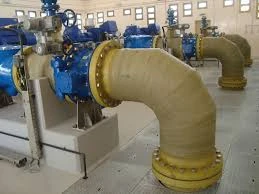
-
 Afrikaans
Afrikaans -
 Albanian
Albanian -
 Amharic
Amharic -
 Arabic
Arabic -
 Armenian
Armenian -
 Azerbaijani
Azerbaijani -
 Basque
Basque -
 Belarusian
Belarusian -
 Bengali
Bengali -
 Bosnian
Bosnian -
 Bulgarian
Bulgarian -
 Catalan
Catalan -
 Cebuano
Cebuano -
 China
China -
 China (Taiwan)
China (Taiwan) -
 Corsican
Corsican -
 Croatian
Croatian -
 Czech
Czech -
 Danish
Danish -
 Dutch
Dutch -
 English
English -
 Esperanto
Esperanto -
 Estonian
Estonian -
 Finnish
Finnish -
 French
French -
 Frisian
Frisian -
 Galician
Galician -
 Georgian
Georgian -
 German
German -
 Greek
Greek -
 Gujarati
Gujarati -
 Haitian Creole
Haitian Creole -
 hausa
hausa -
 hawaiian
hawaiian -
 Hebrew
Hebrew -
 Hindi
Hindi -
 Miao
Miao -
 Hungarian
Hungarian -
 Icelandic
Icelandic -
 igbo
igbo -
 Indonesian
Indonesian -
 irish
irish -
 Italian
Italian -
 Japanese
Japanese -
 Javanese
Javanese -
 Kannada
Kannada -
 kazakh
kazakh -
 Khmer
Khmer -
 Rwandese
Rwandese -
 Korean
Korean -
 Kurdish
Kurdish -
 Kyrgyz
Kyrgyz -
 Lao
Lao -
 Latin
Latin -
 Latvian
Latvian -
 Lithuanian
Lithuanian -
 Luxembourgish
Luxembourgish -
 Macedonian
Macedonian -
 Malgashi
Malgashi -
 Malay
Malay -
 Malayalam
Malayalam -
 Maltese
Maltese -
 Maori
Maori -
 Marathi
Marathi -
 Mongolian
Mongolian -
 Myanmar
Myanmar -
 Nepali
Nepali -
 Norwegian
Norwegian -
 Norwegian
Norwegian -
 Occitan
Occitan -
 Pashto
Pashto -
 Persian
Persian -
 Polish
Polish -
 Portuguese
Portuguese -
 Punjabi
Punjabi -
 Romanian
Romanian -
 Russian
Russian -
 Samoan
Samoan -
 Scottish Gaelic
Scottish Gaelic -
 Serbian
Serbian -
 Sesotho
Sesotho -
 Shona
Shona -
 Sindhi
Sindhi -
 Sinhala
Sinhala -
 Slovak
Slovak -
 Slovenian
Slovenian -
 Somali
Somali -
 Spanish
Spanish -
 Sundanese
Sundanese -
 Swahili
Swahili -
 Swedish
Swedish -
 Tagalog
Tagalog -
 Tajik
Tajik -
 Tamil
Tamil -
 Tatar
Tatar -
 Telugu
Telugu -
 Thai
Thai -
 Turkish
Turkish -
 Turkmen
Turkmen -
 Ukrainian
Ukrainian -
 Urdu
Urdu -
 Uighur
Uighur -
 Uzbek
Uzbek -
 Vietnamese
Vietnamese -
 Welsh
Welsh -
 Bantu
Bantu -
 Yiddish
Yiddish -
 Yoruba
Yoruba -
 Zulu
Zulu
rectangular fiberglass tanks
Understanding Rectangular Fiberglass Tanks Advantages, Uses, and Maintenance
Rectangular fiberglass tanks are increasingly recognized for their versatility and robustness in various applications across different industries. Unlike their cylindrical counterparts, rectangular tanks offer a more space-efficient solution for storage, making them ideal for both residential and commercial settings. In this article, we will explore the advantages of fiberglass tanks, common applications, and essential maintenance practices to ensure their longevity.
Advantages of Rectangular Fiberglass Tanks
One of the most significant benefits of rectangular fiberglass tanks is their durability. Fiberglass, a composite material made from plastic reinforced by fine glass fibers, exhibits excellent resistance to corrosion, chemicals, and ultraviolet light. This resistance extends the lifespan of the tank, requiring less frequent replacements and repairs, thus proving to be a cost-effective option over time.
Another key advantage is the design flexibility that rectangular tanks offer. Manufacturers can easily customize the size and shape to fit specific requirements, enabling efficient use of space in various settings. Whether it’s for residential water storage, chemical processing, or waste management, rectangular fiberglass tanks can be tailored to meet the unique needs of each application.
Additionally, the lightweight nature of fiberglass makes transportation and installation much easier compared to traditional materials like concrete or metal. This feature not only reduces transportation costs but also simplifies on-site assembly, allowing for quicker deployment in critical situations.
Common Applications
Rectangular fiberglass tanks are used in a wide range of applications. One prominent use is in water storage. They are commonly employed for potable water supply in rural areas, irrigation systems for agriculture, and even in residential settings for rainwater harvesting. Their resistance to algae growth simplifies maintenance and ensures that stored water remains clean and safe for use.
In industrial applications, these tanks are often utilized for chemical storage and processing. Their ability to withstand harsh chemicals makes them suitable for industries such as pharmaceuticals, coatings, and waste management. The smooth surface of fiberglass tanks also minimizes the risk of contamination, ensuring that the storage conditions comply with industry standards.
rectangular fiberglass tanks

Moreover, due to their structural integrity, rectangular fiberglass tanks serve as ideal solutions for sewage treatment plants and other wastewater management systems. They effectively contain and process waste materials, contributing to environmental sustainability.
Maintenance Practices
To ensure the longevity and effectiveness of rectangular fiberglass tanks, regular maintenance is essential. Firstly, inspections should be conducted periodically to check for signs of wear or damage, such as cracks or mold growth. Early detection of issues can prevent larger, costlier problems from developing.
Cleaning the tank is another crucial aspect of maintenance. Sediment build-up can occur over time, impacting the tank's efficiency. A thorough cleaning schedule should be established, depending on the tank's usage. For water storage tanks, shocking the tank with a diluted bleach solution can help eliminate potential bacteria, while industrial tanks may require specialized cleaning techniques to handle hazardous materials safely.
It is also essential to monitor the tank's chemical compatibility with the stored materials. Certain substances can degrade the fiberglass over time, so regular checks on the contents and their reactions with the tank are necessary.
Finally, ensuring proper ventilation and temperature control within the tank environment can mitigate stress on the material, preserving its structural integrity. Temperature fluctuations can lead to expansion or contraction, which, if unmanaged, might result in cracks or warping.
Conclusion
Rectangular fiberglass tanks represent a practical solution for efficient storage in a variety of applications. Their durability, adaptability, and ease of installation make them a preferred choice over traditional materials. By understanding their advantages and following essential maintenance practices, users can maximize the benefits of these tanks, ensuring optimal performance and longevity for years to come. Whether for residential use or industrial applications, rectangular fiberglass tanks are a reliable investment in effective storage solutions.









